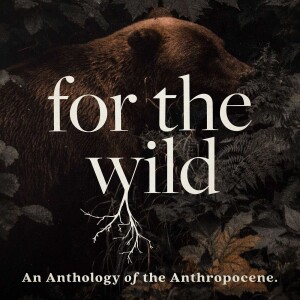
CLAUDIA SERRATO on Earth-Centric Gastronomy /302
 2022-08-31
2022-08-31
Download
Right click and do "save link as"
This week, guest Dr. Claudia Serrato opens our minds to the sensual, political, and vital nature of our relationship to food. Our bodies are a landscape in their own right and with Indigenous feminist theory in mind, this episode bears wittness to the cycles of gastronmies and of life that keep us tied to the earth. Claudia turns to her own landscape to remind us that there are times to dry up and times to bloom. To consume food means that we enter into a relationship with it, we physically embody it. In this conversation Claudia and Ayana dive into what that relationship could be, and how embodiment may be a spiritual quest. Honoring foodways and the gifts of the earth is about more than just changing our diets, but is rather a cultural, spiritual, and political project. How might we honor both where we came from and where we are now in ways that respect traditional foodways alongside place-based geographies/ food ways? Decolonizing the body and the landscape also means decolonizing the kitchen.Through the sacred work of food sovereignty, we can create a better kitchen, a better palate – one that resists the violence of colonization and globalization. This work is the toil of gardening, the pain of remembering, the prayers of the season. This is not easy work, but it is vital, human, and intimate. Dr. Claudia Serrato is a cultural and culinary anthropologist, an Indigenous plant-based chef, and a food justice activist scholar. Claudia has been writing, speaking, and cooking up decolonized flavors for over a decade by ReIndigenizing her diet with Mesoamerican foods and foodways, cooking traditions and nutrition, and culinary ways of knowing.Music by Justin Crawmer, Julio Kintu, and PALO-MA (Paola De La Concha). Visit our website at forthewild.world for the full episode description, references, and action points.
view more
Support the show
More Episodes
Dr. MIMI KHÚC on Claiming Unwellness /304
 2022-09-14
2022-09-14
 2022-09-14
2022-09-14
01234578910111213141516171819
Create your
podcast in
minutes
- Full-featured podcast site
- Unlimited storage and bandwidth
- Comprehensive podcast stats
- Distribute to Apple Podcasts, Spotify, and more
- Make money with your podcast
It is Free
- Privacy Policy
- Cookie Policy
- Terms of Use
- Consent Preferences
- Copyright © 2015-2024 Podbean.com





